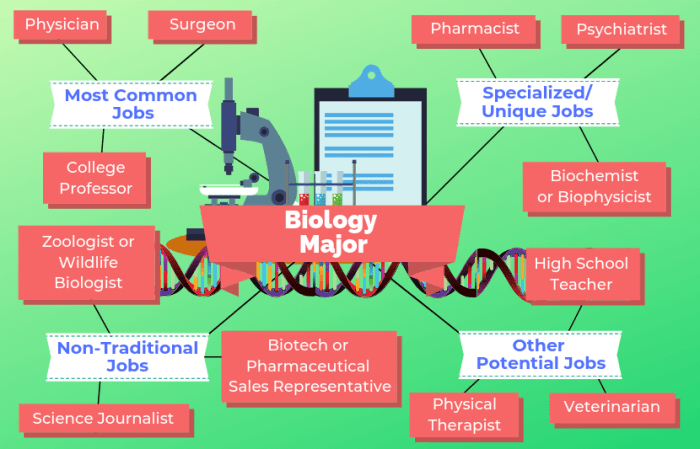Research Scientist
- Conduct scientific research in academia, government agencies, or private industry
- Design and execute experiments, analyze data, and publish findings in peer-reviewed journals
- Develop new technologies, products, or treatments
College/University Professor
- Teach undergraduate and graduate students in biology-related courses
- Conduct research and publish findings
- Mentor and guide students
Biostatistician
- Apply statistical methods to analyze biological data
- Develop and validate statistical models
- Collaborate with scientists and researchers to design and interpret studies
Environmental Consultant
- Conduct environmental assessments and develop plans to mitigate environmental impacts
- Work with businesses, government agencies, and non-profit organizations
- Ensure compliance with environmental regulations
Medical Laboratory Scientist
- Perform laboratory tests to diagnose and treat diseases
- Analyze samples, such as blood, urine, and tissue
- Work in hospitals, clinics, and research institutions
Ending Remarks
As you embark on this academic adventure, remember that the choice of the right master’s program is a crucial step. Consider your interests, career aspirations, and research goals to find the program that aligns perfectly with your vision. Embrace the challenges and opportunities that lie ahead, and seize the chance to become a leader in the field of biology. The world awaits your contributions, and with a master’s degree in biology, you’ll be equipped to make a meaningful impact.
FAQ Explained
What are the different types of master’s programs available in biology?
Master’s programs in biology encompass a wide range of specializations, including molecular biology, cell biology, ecology, conservation biology, and bioinformatics. Each specialization offers unique coursework and research opportunities tailored to specific career paths.





